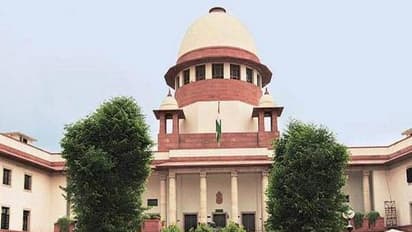Supreme Court raps Centre over failure to curb road deaths, demands action on 'golden hour' cashless treatment

Synopsis
The Supreme Court summoned the Road Transport Secretary, criticising the Centre for delays in implementing a cashless treatment scheme for road accident victims during the golden hour. The court said action only happens when top officials are summoned.
The Supreme Court on Wednesday issued a sharp rebuke to the Centre, expressing grave concern over the government’s failure to address the country’s mounting road safety crisis and implement critical life-saving measures, including a cashless medical treatment scheme for accident victims during the 'golden hour'.
Calling it an “epidemic of negligence”, the court said that despite repeated orders, road fatalities remain alarmingly high, and key interventions—such as black spot rectification, stricter enforcement of traffic laws, and robust emergency response systems—have seen insufficient progress.
Also read: Waqf Act comes into effect from April 8, Centre issues notification
The court, led by Justice Abhay S Oka, took particular exception to th delay in implementing a nationwide scheme for cashless emergency medical care—a measure it had directed the Centre to roll out by March 14, 2025. The scheme, backed by Section 162(2) of the Motor Vehicles (Amendment) Act, 2019, aims to ensure that accident victims receive immediate, free-of-cost treatment within the first 60 minutes after trauma—widely known as the golden hour.
“It is a very serious breach and violation of an order of this court,” Justice Oka said. “People are losing their lives because there is no treatment.”
The bench criticised the Centre’s lack of urgency, stating that its orders are taken seriously only when top government officers are summoned. “Despite repeated directions, there is no concrete progress,” the court observed, warning that it would consider contempt proceedings if meaningful steps were not taken soon.
In line with this, the Secretary of the Ministry of Road Transport and Highways has been directed to appear in person on April 28 to explain the delay. The court said that lives are at stake and the government’s inertia is inexcusable.
Also read: Meet India's Highest Paid Lawyer, Harish Salve's Net Worth
Citing reports and patterns observed during hearings, the bench flagged a worrying trend of bystanders, police, and hospitals hesitating to act, often due to uncertainty about payment and procedural liabilities—particularly in cases where no family or guardian is present at the time of the crash.
The idea of a cashless golden hour treatment scheme was first floated by the Centre in December 2023, but the court noted there had been little to no implementation on the ground since.
A report by Live Law quoted the bench saying: “Only when we summon top government officers something happens. The golden hour care remains on paper. Lives are being lost due to delay in treatment.”
The court’s intervention underlines the urgency of a national-level emergency response mechanism, one that not only ensures timely care but also removes bureaucratic roadblocks during moments when every second matters.
Stay updated with the Breaking News Today and Latest News from across India and around the world. Get real-time updates, in-depth analysis, and comprehensive coverage of India News, World News, Indian Defence News, Kerala News, and Karnataka News. From politics to current affairs, follow every major story as it unfolds. Get real-time updates from IMD on major cities weather forecasts, including Rain alerts, Cyclone warnings, and temperature trends. Download the Asianet News Official App from the Android Play Store and iPhone App Store for accurate and timely news updates anytime, anywhere.